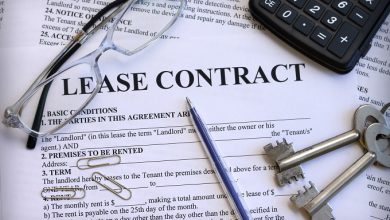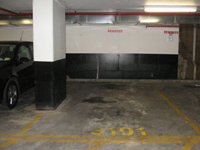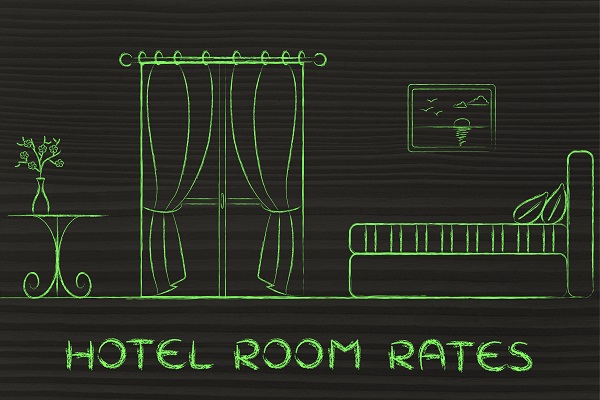
EXCLUSIVE: We spoke to Expedia about rate parity and guest communication…
accomnews had a recent opportunity to interview Alejandro Moxey, the Director of Market Management at Expedia. We asked him a few questions about some of the concerns our readers have raised over the last few months. Here’s the Q&A:
Q1. A lot of accom managers have voiced concern about rate parity, believing that they should be able to set their own rates lower than the rates placed on an OTA. What is your view and why do you think that should/shouldn’t be the case?
It is important to look at the big picture: everyday millions of travellers come to our site to shop for and book travel. We are a live marketplace that delivers global and domestic demand to Australian hoteliers – last year alone, Expedia spent USD1.3bil in technology and USD5.2bil in marketing to the benefit of our hotel partners.
In its contracts with hotels in Australia, Expedia has waived certain provisions relating to rate, availability and conditions parity with respect to OTAs, offline channels and unpublished rates.
However, as there are no upfront costs for our hotel partners – we only receive compensation when the booking is made on Expedia’s platform – rate and conditions parity provisions with respect to the hotels’ own public websites (online direct channels) have been retained.
Q2: How do you believe guest communication should be structured? What’s safest? Many managers have been recent targets of fraudulent behavior (data or credit card thieves posing as guests), which can be difficult to spot over email Vs the phone, for example.
To create an engaging relationship with customers, hotel managers can structure their communications according to the three stages of the guest journey: pre-arrival, during the stay and post-stay.
Specifically, in the pre-arrival stage, hotel managers can open lines of communication by reaching out to guests who have booked their stay. Once guests have arrived, managers can leverage tools like Real-Time Feedback to discover potential issues during the stay, giving them the ability to rectify the issue before it impacts the guest experience and results in negative review.
Last but not least, it’s important for hoteliers to engage with guests after check-out so they can get actionable insights to enhance guest experiences, improve online reputation and attract more travellers in the future.
Q3: What elements of ‘communicating with guests post-trip’ do you think properties should engage in? Can you share stats that indicate how guests respond to different amounts of communication? My concern would be alienating guests who might get annoyed by too much communication.
Engaging with guests post-trip is important and demonstrates that hoteliers care about customer feedback and improving the guest experience.
Responding to questions and concerns in reviews from past guests is equally important.
Statistics show that 62 percent of guests are more likely to book a hotel if they see hotel management responding to reviews, and 87 percent of users agree that an appropriate response to a bad review improved their impression of the hotel.1
Naturally, travellers often want to relive their experiences by posting reviews on travel websites. When it comes to reviews, Expedia equips hotel managers with the tools to dive deep into insights relating to two key areas – amenities and services.
Q4: You mention ‘competitive pricing strategies’ but for many smaller accom providers there is only so ‘low’ they can go before it’s not worth their while. How else can managers make themselves more competitive online?
Expedia is a live marketplace which means price and availability are changing in real-time while millions of travelers are shopping and booking on our sites. The hotels that perform best on our sites are those that deliver what consumers are looking for, such as high-quality photos, positive reviews, and the most competitive rates and availability.
While competitive pricing is important, it is important to note that it is only one component of a successful distribution strategy.
Further, being competitive doesn’t always have to specifically relate to price; value-added promotions, for example complimentary breakfast or a drink on arrival, late check-out, etc., can also be effective ways to differentiate your offerings against other properties.

AccomNews is not affiliated with any government agency, body or political party. We are an independently owned, family-operated magazine.








Waffle, waffle and more waffle. They expect us to believe they spend USD5.2 billion just to benefit little old us!!!
I think that it is interesting that Hotels have to provide rate parity but their own site Trivago has a marketing strategy/campaign that is specific to finding you the best price, see below their lead in Google brief – How is this so that they can advertise this to customers to find the best price but we all have to supply rate parity?
trivago.com.au – The world’s top hotel price comparison site. Compare hotels, find the best price and search for the best deal on accommodation along with millions of reviews and photos on trivago.com.au
Same old stuff… Never answer the question about rate parity. If i run a hotel i simply wont give rate parity to them… there are so many ways to get around it… Stuff them
I note this article mentions they have waivered certain provisions for price parity with other OTAs. Might I ask what these are? If Expedia finds a parity problem with regards to a special we have run elsewhere, we are threatened with dropping our ranking and are demanded to either discount their end or turn off a special we have negotiated with another agent.
This is a fluff piece for Expedia – wouldn’t be surprised if they paid for it.
Hi Kate,
Thanks for your comment. I will be collating questions from this comment section for a future interview so this is terrific! Expedia did not pay for this (or any other) article I have written. We do have a ‘supplier’ section on our website where advertorials are posted if you want to check those out but you won’t find anything from Expedia there either.
Much appreciate your comment 🙂
What a load of rubbish. I’m not sure if one of the questions was answered properly. Worse than a Politician.
The sad really of the OTA phenomena is to achieve competitive pricing properties are racing each other to the bottom.
Yesterday I uncovered paper work from our opening year in 1993. We sold 2 bedroom apartments for $130.00 per night for a family of 4. Today our rate is $225.00. In 1993 we didn’t have 10% GST, Free Foxtel. Free Internet and we didn’t have 12/15% commission. Not to mention the massive increase in electricity prices, gas and wages in those days were half of what they are today.
If you just deduct the commission and GST our net is $168.75. So if you factor in the utility charges and amortise the massive renovations costs, repairs and wages we are no better off after 25 years. The only good thing is interest tares were then 12.5% and now are much less though we are now debt free so there is no concern in that area
Forget price parity and add the total value commission on to your OTA rates today. If they squeal then starve them of inventory.
Everybody is now promoting Direct Booking value on their websites . Tell all of your customers across the desk that the best value is Direct. Tell your customers that OTA’S are “Good for Looking but not for Booking”. Tell them to ” Look for the Direct price before your you Book”.
They are a parasite that intercepts our customers then dictates to us how we will run our business.
Its as simple as that.
Agree with all the comments on here a load of waffle. We are a small family owned business and we have our limits. What these big overseas money grabbing thieves don’t take into consideration when raising their commission rates is all the other expenses that we have insurance, council rates, rising electricity costs and expenses to repair and replace when people leave and don’t own up to the damage before they smile and wave goodbye. We should start charging a fee to the OTA’s when we have to spend money on repairing damage done by the people that use these sites? We find people that use OTA’s don’t give a crap about our business or our property all they care about is getting a 6 star room on a budget at a 3.5 star accommodation provider. Most of them don’t care to read what their booking before they book and expect the world on arrival.
We gave up selling B&B online as why should we pay commission on food? We use our car and fuel to go and to source and purchase the food we use electricity gas etc to store and prepare the food why should the OTA’s take cut on food. Most of the OTA’s dodge paying taxes here in Australia so what entitles them to take a cut of the food? Don’t give a shit about the money they spend on marketing and technology it does absolutely nothing for our bottom line.
The issue with OTA “rate parity” is how this is a contractual term and a metric that may have impacts on visibility and or result in a request for the situation to be addressed, putting the provider under pressure. Rate Parity should not be a contractual term. Properties need to retain control over rates.
However rate parity on open market rates needs careful consideration as part of your overall positioning and strategy.
The industry adopted OTA’s as they embraced technology, disrupting what had been traditional models, removing geographical barriers and providing measurable results. The consumer rapidly adopted to real time market place, providing platforms to shop, compare and transact with instant recognition and satisfaction.
Accommodation providers took longer to pick up the tools that online offers and whilst the ultimate direct is best, the resource put into properties own websites, images, and general marketing does not match the desire for direct is best.
A properties own site is a critical and vital channel and needs to be managed as such and it costs money to do this effectively and on an ongoing basis. This includes best images, customer journey, mobile friendly, bookability in a safe and secure environment, let alone the marketing of it and the other options to market to your own database.
Why give away margin on a properties own site when the cost to market this are very real.
Price is a tool, so too are the OTA’s. Be smart about your choices and that of your customer.
I would add and acknowledge accommodation providers have had a myriad of cost layers added over the years when it comes to online; commissions and growing commissions, intermediaries, channel distributors and a range of optional add one, online marketing in all its forms and credit card fees.
Tanis
What are you trying to say?? As an accommodation owner I can’t understand what your message is.
It is now totally naive to think you can compete with your own website as the OTA’s pay $100’s of millions to Google and Facebook, Bing etc to be above us so the days of investing mere $1000’s into our own website has gone.
Expedia and Priceline, (Booking.com) are now a duopoly that control the whole accommodation market.
The ACCC have not only watched this happen but the Australian tax department and via them, us, miss out on all the GST and other Tax revenue.
How do we now control the Beast???